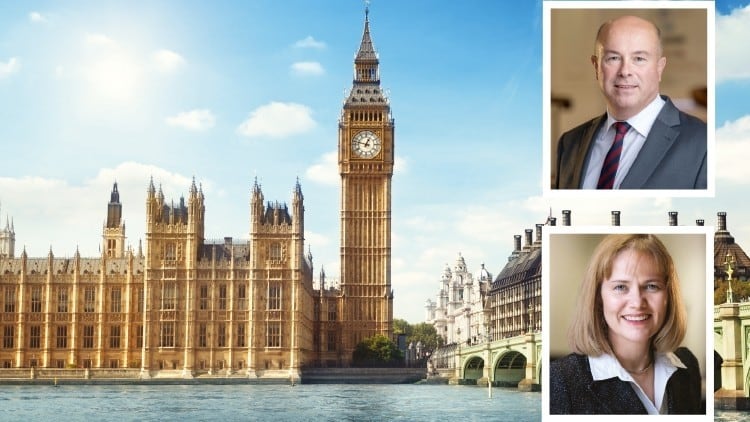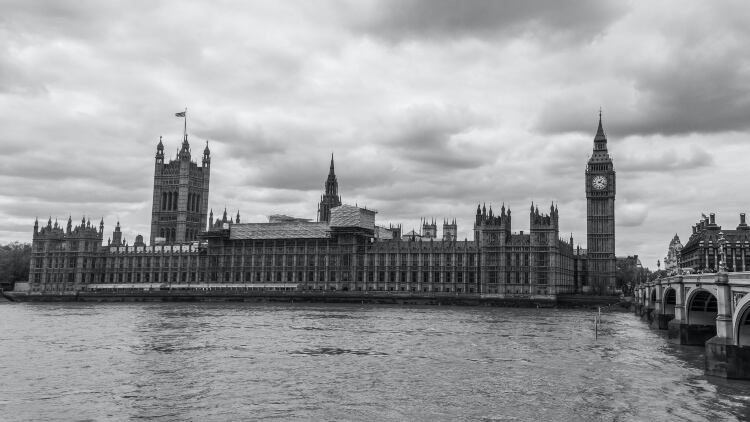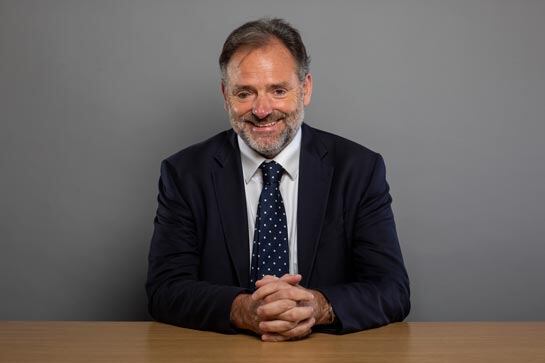Even before the outbreak of Covid-19, 2020 was slated to be a transformative year for the pub trade with Britain entering a Brexit transition period; legislation, including a single-use plastic ban on the parliamentary agenda; and manifesto pledges to increase public safety and security looming.
The Covid-19 pub shutdown has all but scuppered the VE Day Relaxation order – allowing pubs to open for an additional two hours across Friday 8 May and Saturday 9 May from 11am until 1am the following morning – with the current lockdown extension taking the UK to May 7 with pubs widely expected to be among the last businesses to open post-lockdown.
However, with parliamentary business being conducted digitally after MPs return from Easter recess on 21 April – and ministers quizzing their colleagues via Zoom – despite some delays, parliament hasn’t yet fallen victim to Covid-19. Here’s a closer look at some of the ways pub facing legislation has been affected by the ongoing pandemic.
Government to proceed with business rates revaluation bill
Despite the ongoing pandemic, the Government is pushing ahead with legislation requiring pubs to pay business rates from next April based on fair maintainable trade from 1 April 2019 – almost a year before the Covid-19 outbreak.
The Non-Domestic Rating (lists) Bill was introduced in the House of Lords on 18 March, a day after Chancellor Rishi Sunak unveiled a £2bn package of financial support, including a year-long business rates holiday.
However, real estate adviser Altus Group’s head of UK business rates, Robert Hayton, argues that it would be far better, economically, to tie new rateable values to post Covid-19 economic circumstances and that proposed legislation would damage the pub sector.
“The Government’s intention to proceed with the Non-Domestic Rating (Lists) Bill will bring forward the next revaluation of business rates to 1 April 2021, based upon an antecedent valuation date well before the Covid-19 pandemic, could be potentially disastrous for pubs and their future viability,” Hayton told The Morning Advertiser (MA).
“It seems wholly inappropriate to set new tax liabilities from 1 April 2021, for a minimum of three financial years thereafter, based upon fair maintainable trade for pubs and licensed premises on 1 April 2019.
“New rateable values would then be based upon facts a year before the pandemic adversely affected the hospitality sector and potentially will have the devastating impact of setting valuations at an artificially high level, especially for pubs and licensed premises.”
Hayton adds that postponing the revaluation until 2022 would provide a complete reset of rateable values sympathetic to the state of the market after the current Covid-19 emergency has passed.
“Having the underlying evidential economic base as close as practicable to the compilation of physical factors must be the appropriate and desired way forward to help pubs and licensed premises navigate their way out of the current financial crisis caused by the pandemic,” he continued.
“Pubs and licensed premises deserve, at the very least, a fresh collective look with the aim of the next rating tax base being both accepted and fundamentally correct from the start of the next new rating list. A 2021 revaluation cannot provide that cornerstone.
“The bill could be hugely damaging for years to come hindering the pub trade’s road to recovery from the coronavirus.”

Ban on plastic straws and stirrers delayed
On 15 April, the Department for Environment, Food and Rural Affairs (DEFRA) revealed that due to ongoing disruption caused by the Covid-19 outbreak, its ban on plastic straws and stirrers had been delayed until October.
Ministers agreed that implementing the ban in April, as initially planned, would place undue pressure on businesses such as pubs and bars, which have been forced to close their doors due to the ongoing pandemic.
“Given the huge challenges posed to businesses by coronavirus, we have confirmed we will delay the introduction of our ban on plastic straws, stirrers and cotton buds until October 2020,” a DEFRA spokesperson said.
“We remain absolutely committed to turning the tide on the widespread use of single-use plastics and the threat they pose to our natural environment.
“This ban is yet another measure to clamp down on unnecessary plastic so we can better protect our precious wildlife and leave our environment in a better state for future generations.”
Discussing the delay, the British Institute of Innkeeping’s (BII) chief executive Steve Alton added the priority for Government is, quite rightly, to focus on the effect Covid-19 is having on the NHS, communities and businesses.
“We understand that this inevitably means delays in other areas across the board and feel that the temporary closure of hospitality businesses in the UK will already have impacted massively on the quantity of plastic straws and stirrers being used,” he said.
‘No interruption’ for pubs code adjudicator
Speaking to MA on 20 April, pubs code adjudicator (PCA) Paul Newby explained his office was “fully functional” when asked about the possibility of the Covid-19 shutdown delaying any review of the pubs code and the investigation into Heineken’s pub arm, Star Pubs & Bars.
“Our work at the PCA carries on,” Newby told MA. “I'm not going to talk in very specific detail about things that are still works in progress, but the PCA is fully functional.
“We have a very good platform to be able to work remotely and, as you can imagine, we've been working flat out for the past few weeks.
“We’ll be carrying on with our current programme of work as normally as we possibly can given that we’re not working from a single office.
“There has been no interruption in our work generally and, at the moment, I do not foresee there being an interruption in our work programme – albeit that we’re diverting resource to dealing with Covid-19 related matters.”
As reported by MA, the six businesses regulated by the pubs code signed a joint declaration to protect tenant rights after informing PCA Paul Newby they are unable to uphold duties – including serving compliant rent proposals, rent assessment proposals and market-rent-only (MRO) option full responses – during the Covid-19 shutdown.
What’s more, Newby will step down from his post at the end of April, to be replaced by current deputy Fiona Dickie.

Government consultation on ‘protect duty’ paused
The Government's consultation on creating a legal requirement for operators of public spaces and venues to introduce counter-terrorism measures has been paused amid the Covid-19 outbreak.
Delivering on the Conservative Party’s manifesto pledge to make public venues and spaces safer, the new ‘protect duty’ will draw on lessons learned from the Manchester Arena bombing and London Bridge terror attacks in 2017, as well as more recent incidents.
A Home Office spokesperson told MA: “We are clear that the introduction of a protect duty is important to enhance public safety but, due to the impact of the coronavirus outbreak, we have decided to pause the launch of the consultation on it.
“We are keeping the situation under careful review and intend to proceed with engagement and consultation on this as soon as circumstances allow.”
The law would require pub and nightclub operators to bolster counter-terrorism measures – for example by increasing physical security, having training in place, incident response plans and exercises for staff on what to do during an attack.
When announcing the proposed legislation, security minister James Brokenshire explained that a public consultation would be launched in spring and would seek views from a range of organisations including business, public authorities, the security sector and campaign groups to ensure any proposals remain proportionate for spaces and venues across the country.
“Our first priority is keeping the public safe and preventing more families from suffering the heartbreak of losing a loved one,” Brokenshire explained while announcing plans to introduce ‘Protect Duty’ legislation.
“The devastating attacks in 2017 and, more recently, at Fishmongers’ Hall and Streatham, are stark reminders of the current threat we face.
“We are in complete agreement with campaigners such as Figen Murray on the importance of venues and public spaces having effective and proportionate protective security and preparedness measures to keep people safe.
“Of course, it is important that this new law is proportionate. This public consultation will ensure we put in place a law that will help protect the public while not putting undue pressure on businesses.”
Rent statutory demands and wind-up notices banned by Government
The Government is to temporarily void statutory demands and winding-up petitions issued to commercial tenants amid the coronavirus pandemic under the Corporate Insolvency & Governance Bill set out by business secretary Alok Sharma.
As reported by MA, the measures designed to aid businesses that cannot pay bills due to coronavirus and help ensure they do not fall into deeper financial difficulty.
What’s more, the Government is also penning secondary legislation in a bid to offer tenants more breathing space to pay rent by preventing landlords using Commercial Rent Arrears Recovery unless they are owed 90 or more days of unpaid rent.
Local licensing policy
On a more local level, many councils across the UK would likely have been due to review items including their Statement of Licensing Cumulative Impact policies during 2020, which can often lead to the tightening up of requirements for new applications.
MA understands it is unlikely many of these reviews will go ahead under the current circumstances as social distancing measures and pub shutdown brought about by the Covid-19 pandemic don’t allow for a realistic assessment of the impact – whether positive or negative – of amending existing policies.
It’s understood that this could also apply to amendments to licensing tables and chairs as well as pavement licence policies, which are, likewise, expected to be delayed. However, these decisions are being made by councils on a case-by-case basis.




